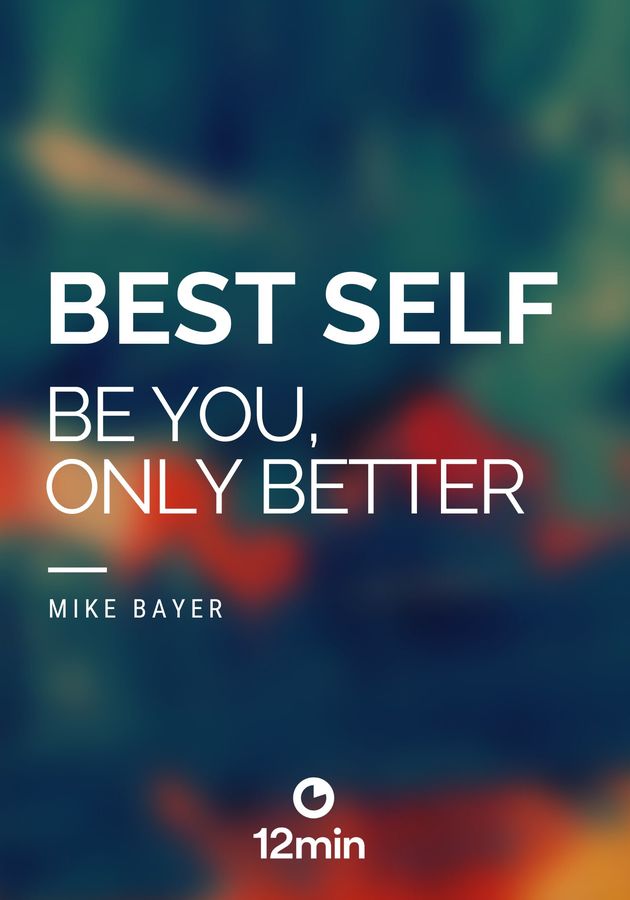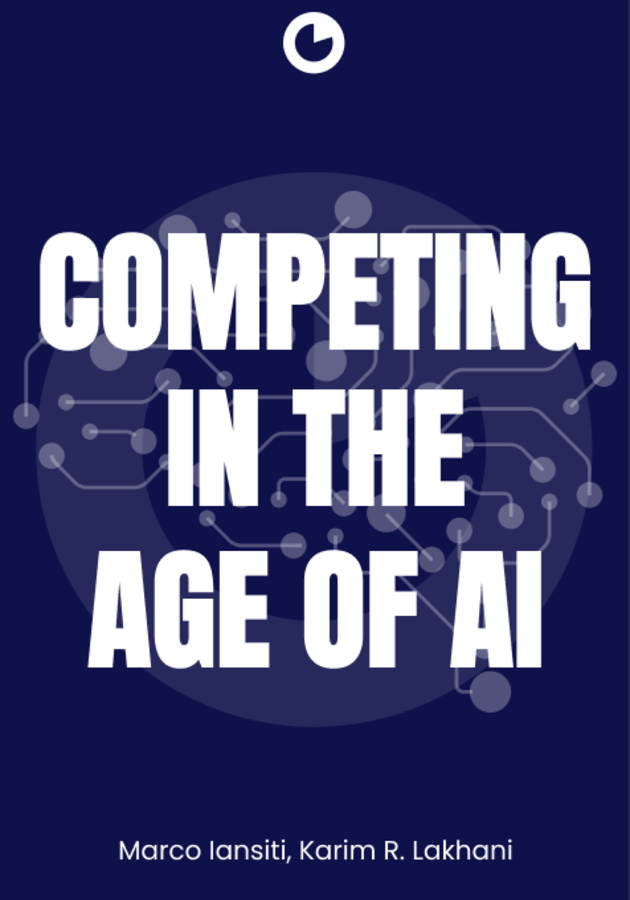Do you know this feeling? You’re working towards a tight deadline, but your mind keeps wandering and you can’t seem to focus? You’re not alone in that. Our minds are naturally inclined to wander, and it isn’t always a bad thing, as it can also lead to creative insights. But to achieve mastery, have successful relationships and to be a good leader, focus is essential. So, get ready to learn how to focus and lead a more successful life!
Why is focus so important?
Imagine for a moment the open-floor office of the New York Times. Despite the constant hum of conversations, phone interviews, and journalists shouting across the room, everyone working in this office delivers their work on time. No one ever asks for quiet so that they can concentrate. How is it possible for people, in this age of constant distractions, to still get things done? It’s in our ability to pay selective attention to what we do - our ability to focus.
Attention does not only express itself when we work. Every aspect of our lives are based on the ability to focus: “A short list of some basics includes comprehension, memory, learning, sensing how we feel and why, reading emotions in other people, and interacting smoothly.”
Our ability to focus, in short, allows us to live a fulfilling life. Focus can be divided into three groups: our inner focus (our self-awareness), our other focus, which allows us to have successful relationships, and the outer focus, which helps us navigate the world. Good leadership is defined by having all three kinds of focus, and all three used together allow every single one of us to be happy and productive.
Our addiction to modern technology such as smartphones and tablets means we’re losing our ability to focus. An entire generation is growing up glued to the screen, losing the ability not only to concentrate on any task for very long, but also the ability to create self-awareness or meaningful relationships with others.
It is not only children who are affected by the constant information flow provided by technology. All of us struggle to manage the distraction that a buzzing phone creates. This has led to us developing “habits of attention that make us less effective.” According to Herbert Simon, 1977 Nobel-winning economist, “A wealth of information creates a poverty of attention.” Now, more than ever, it is vital that we train our attention span and focus, since this is what connects us with the world.
How does focus work?
Distractions are all around us, and within us as well. They can be sensory and emotional – but the most potent distractors are emotional turmoils in our lives. Anxiety during a test, for example, will lead to us performing poorly. Being able to take a deep breath and step back from this anxiety is essential for good performance on the test.
When we focus, we constantly have to fight distractions. But our attention does have a limit. It’s like a muscle – and thankfully, we can train it. The working of our minds can be roughly differentiated into two main states: either bottom-up or top-down thinking. Bottom-up workings of the mind are the automatic thinking processes that literally take place at the back of our minds. They’re impulsive and driven by emotion. The bottom-up mind is always active. It scans our environment before selecting certain features it then brings to our attention.
The top-down mind, on the other hand, is the seat of self-control, where our ability to learn lives, and it demands more effort since it is not automatic. The top-down mind is the active engagement of attention – it allows us to control our thoughts and emotions. In order to focus, we need to train the top-down mind.
The benefits of being able to focus are endless. We can get into a state of flow when we work, which allows us to achieve true mastery in any given field. Getting into the flow state is particularly easy if we love what we’re doing. But even if you struggle getting into the flow state on an average day, as about 80% of people do, you can try to entice it by setting yourself tasks that challenge you.
Letting our minds drift isn’t always bad, though. In fact, half of our thoughts are daydreams. The wandering mind can be seen as the brain’s default mode. This is when we have creative insights or come up with solutions to unresolved problems.
Developing self-awareness
It’s essential for success to have confidence in our own values. Take George Lucas as an example. When he first came up with the film script for Star Wars, he refused a lucrative deal from Hollywood, since he wanted to retain the artistic control over his film. This eventually ended up being a rewarding choice for him, but what kept him on the path of pursuing his dream was that he believed in his vision.
Inner focus, or self-awareness, allows us to know our own values, but it also encompasses the ability of metacognition: being able to think about thinking, and being able to analyze our thoughts and to adjust them. Meta-emotion, another manifestation of self-awareness, means being able to guide and control our emotions.
The ability to focus on the inner workings of our mind lies at the root of all willpower and self-regulation. And how well we can exercise either of them defines our success in life.
In the 1970s, a test was conducted with toddlers who were given a marshmallow. They were told they could either eat it immediately or wait until the experimenter came back and have two, instead of one. During follow-ups years later, the children who had managed to wait for the second marshmallow went on to live more successful and healthier lives than those who hadn’t.
Self-awareness also allows us to achieve true excellence. You may have heard of the 10,000-hour rule, which is that in order to perfect a skill, one needs 10,000 hours of practice. That’s not quite true. What is needed is deliberate practice. And we can only deliberately work on improving mistakes when we have learned to recognize them first.
Reading others
The ability to focus does not only increase our self-awareness, it also helps in our relationships. Our other focus allows us to read nonverbal cues when talking to others and thereby gain insights into how the other person is feeling and react accordingly. To have successful relationships, other focus is essential.
The reading of these signs is automatically performed by our bottom-up minds, through our emotional empathy. But the reaction to them is governed by our top-down minds, our cognitive empathy. To create sympathy, however, we need empathic concern, which is a mixture of the two.
Being able to react according to the signals other people send has immense effects on our daily lives. If, for example, the timing of a positive gesture is just a little bit off, this can immediately have a negative impact. For example, if during a job interview you automatically move in sync with the interviewer, then you’re more likely to get hired. This, of course, is extremely challenging for people who have trouble reading these nonverbal cues, such as people with autism.
We all struggle to correctly interpret nonverbal cues when travelling to a different culture. Cross-cultural talent for social sensitivity is linked to cognitive empathy. And even in everyday conversations, the rules always shift depending on the circumstances we’re in, and to whom we’re talking.
Seeing the bigger picture
The third kind of focus, outer focus, manifests itself in systems awareness. This is the ability to detect and map the patterns that govern the world around us. We don’t have a natural circuitry in the brain that’s used for reading systems. So, systems awareness is learned through top-down thinking.
If we’re not aware of the systems around us, this can have serious consequences: dealing with traffic jams is a good example for this. The short-sighted solution would be to build more roads, so that traffic can move more quickly. However, this would lead to more development on these roads, which means more traffic in the long run.
One effective way of learning systems awareness is by playing computer games. While these can have potentially dire effects on children’s development, one positive side effect is the ability to learn “the ground rules of an unknown reality.”
On the upside, systems awareness can help us to stop climate change, or global pandemics. Knowing what causes them also means knowing where and how to stop them.
Good leadership looks towards the future
It is difficult for us to grasp the effect of our actions in the far future. That is because our brains are only wired to react to instant, immediate threats. In the face of these, our brains are flooded with cortisol and adrenaline, causing us to flee. But distant threats require cognitive effort to be envisioned.
We all tend to plan for the short-term, but this can have a negative effect on our long-term goals, as we are too focused on the present. Especially in the times of climate change, it is more important than ever to think in the long term, so that future generations can live on a healthy planet as well.
Businesses have a particularly important role to play in achieving a brighter future. To plan accordingly, a leader needs to see the bigger picture while also finding shared values supported by his stakeholders. Leaders also need to be able to communicate their goals effectively. In short, they need inner, other, and outer focus.
Leadership isn’t limited to being the CEO of a big company. We all have the power to influence others in our lives. “Great leaders do not settle for systems as they are, but see what they could become, and so work to transform them for the better, to benefit the widest circle.” If you want to make sure that your actions are having a positive impact on those around you, and on the generations to come, consider these questions from the Dalai Lama:
- Is it just for me, or for others?
- For the benefit of the few, or the many?
- For now, or for the future?
How to enhance your focus
Our ability to focus is like a muscle, so we can train it, like any other muscle. Try some of these ideas to enhance your own focus:
- One-pointed meditation: It trains you to focus on one specific sensation, usually the breath. Even though your mind will inevitably wander during the exercise, you will get better at focusing, in time.
- Think positive! Focus on your strengths and on your dreams. Positivity will make it easier to learn new skills.
- When stuck on a problem, try going for a walk. This might allow your bottom-up mind to process and come up with a solution to your problem.
Final Notes
The “Financial Times” summarized Goleman’s book quite aptly when saying “Goleman appears to have the measure of his readers. In ‘Focus’, he cleverly employs short chapters littered with case studies to engage professionals swimming against a tide of electronic correspondence... A highly readable manifesto for turning our smartphones off once in a while.” Goleman certainly has a lot to say on the topic, but he doesn’t always formulate his thoughts in an easy-to-grasp manner.
12min Tip
Try some of the tips given here to enhance your focus and see what an effect this has on your work!





























